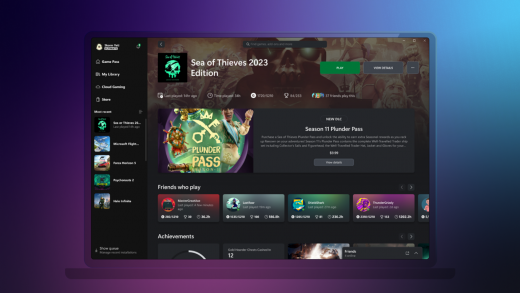
Apple unveiled macOS Sequoia as the latest version of its desktop operating system for Mac computers, at WWDC 2024 on Monday. The update to macOS Sonoma will be rolled out to eligible Mac models later this year with support for new features including iPhone Mirroring, a dedicated Passwords app that works on the company’s devices as well as Windows computers. Meanwhile, Apple’s Safari browser is gaining the ability to automatically summarise web pages, using machine learning technology. The macOS 15 update will roll out to eligible Mac computers later this year.
With macOS Sequoia, Apple is adding support for iPhone Mirroring, which will allow users to access their smartphone wirelessly, directly from the computer’s screen. The feature will work even when the smartphone is away, and while the screen is locked, according to the company. Apple also says that notifications from an iPhone will be mirrored onto macOS Sequoia, and users can interact with them to open the app and interact with it without picking up their smartphone.
![]()
Apple Intelligence on macOS Sequoia will only be available on Apple Silicon Macs
Photo Credit: Apple
Apple Intelligence, the company’s on-device artificial intelligence system powered by the Neural Engine, will also enable new features on compatible Mac computers later this year. This includes a more powerful Siri that can take actions inside apps, proofreading and rewriting for text in supported apps, and image generation via Image Playground. Apple’s Photos app is also getting AI upgrades, including the ability to generate videos from photos with prompts.
The upcoming macOS Sequoia update will finally render third party window tiling managers like Magnet and BetterSnapTool obsolete with native support for the same functionality, nearly 25 years after the release of the first version of Apple’s desktop operating system. Meanwhile, the Messages app will add support for emoji and sticker Tapback reactions, just like on iOS 18.
Apple is also upgrading the Photos app on macOS Sequoia with support for displaying Collections based on specific themes, while allowing users to access improved search results — including content inside videos. The Apple Notes app will also transcribe audio and summarise notes using Apple Intelligence.
The company has also announced many new features enabled by Apple Intelligence — such as Image Playground, text proofreading and rephrasing, and summary generation — that will be available only on Mac models that are running on Apple Silicon. This limits support to computers with M1, M2, or M3 chips. Both on-device Apple Intelligence and the Private Cloud Compute feature are designed to protect user privacy while enabling AI features on the eligible devices, according to the company.



